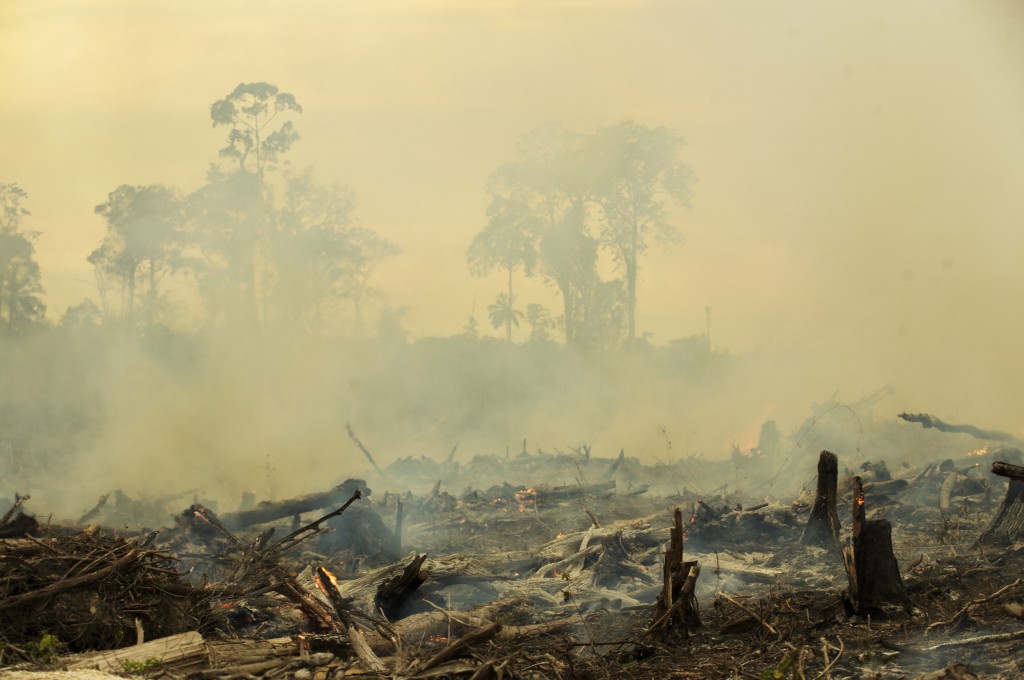The International Finance Corporation (IFC), a member of the World Bank Group, has frozen new investments in oil palm projects and is reviewing all current oil palm projects.
The IFC is a major player in development, and their recognition of the negative social and ecological impacts of oil palm is a significant signal to the industry that their harmful practices will no longer be tolerated.
The IFC did not initiate this action on their own; a major push from the Forest Peoples Program (FPP), Sawit Watch, and Lembaga Gemawan forced the IFC to acknowledge that they have violated their own internal standards when investing in the Wilmar Group, Indonesia’s largest oil palm producer.
As pointed out in a report authored by the Forest Peoples Program, the IFC ignored negative reviews of Wilmar by the IFC’s own Compliance Advisory Ombudsman and pushed through a major loan package to the oil palm producer in October 2008.
The Ombudsman acknowledged complainants reports that Wilmar subsidiaries were illegally using fire to clear primary forests and high conservation value areas, in addition to seizing Indigenous peoples land without Free, Prior, and Informed Consent.

In response to their own errors, the IFC has promised to develop an Advisory Services program targeting the oil palm sector to support fair labor and land tenure practices, increase participation with the Roundtable on Sustainable Palm Oil, increase protections for primary forests, and to send an IFC team to visit Wilmar’s plantations in Indonesia.
IFC’s increased vigilance of the impact of the oil palm industry is a great win for the forests and forests peoples of Indonesia, Papua New Guinea, and Malysia. But as Marcus Colchester, director of the FPP, points out:
“Still, we remain somewhat exasperated. It has taken us more than five years to get the IFC to take these issues seriously. Given the urgency of halting forest loss and human rights abuses, we call on the IFC President to take personal proactive steps to ensure this never happens again.”
The full IFC and FPP reports can be found here.
—
Update 2:
The following sentence appearing in the post above:
The Ombudsman acknowledged complainants reports that Wilmar subsidiaries were illegally using fire to clear primary forests and high conservation value areas, in addition to seizing Indigenous peoples land without Free, Prior, and Informed Consent.
has been changed from the original sentence below to better reflect the Ombudsman’s report:
The Ombudsman report states that Wilmar subsidiaries were illegally using fire to clear primary forests and high conservation value areas, in addition to seizing Indigenous peoples land without Free, Prior, and Informed Consent.
Update 1: The New York Times ran a story on the IFC report mentioned in this blog post, before the IFC took action to freeze funding for new oil palm projects. You can see the NYTimes article here.
David Gilbert is a Research Fellow at RAN. He has worked in the tropical forests of the Amazon and Indonesia, with a special focus on forest conservation and indigenous rights.